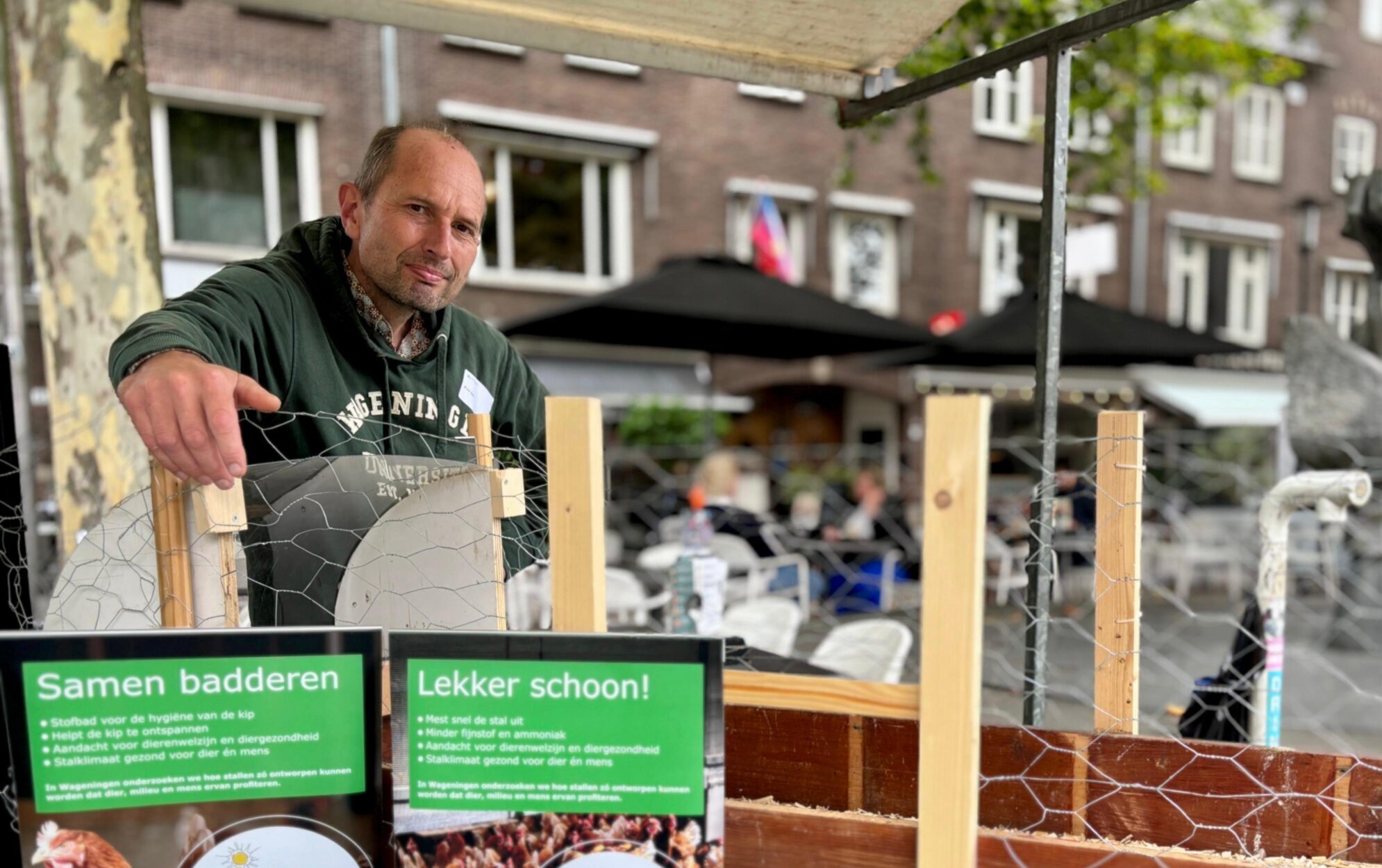PhD student Puck Guldemond (Strategic Communication) is one of the 12 new Faces of Science. She is studying political microtargeting, a form of advertising through social media where political parties send targeted messages to a specific audience. As a Face of Science, she is keen to find out how she can connect her findings to social developments.
Faces of Science is an initiative of science society KNAW, in which young scientists inspire enthusiasm for science among young people through blogs, vlogs and podcasts, among other things. They literally give a face to the profession of scientist. Guldemond wants to show that science can also be creative. ‘For many youths, there is a field in science that is more fascinating than they think.’
In her PhD research (see box below), Guldemond investigates the psychological processes behind political influence through online ads. She shows test subjects content from different political parties and asks them to write down their thoughts. She also uses eye-tracking to see where their attention goes when people are exposed to political ads. Ultimately, she analyses whether these responses are related to the subjects’ political preferences.
Trust in science
Guldemond wants to contrast all these “closed processes of influence” with more transparency. ‘A lot of scientific research is paid for with public money. I think it is important to tell what we do with such grants and what the results of that research are. Especially at a time when governments worldwide are cutting back on education and science, as a scientist you have to tell precisely what you are doing and why it is important.’
Science can sometimes cause confusion because of conflicting results. Guldemond: ‘That is why it is important that you can explain to the general public how they should interpret research results. If we can explain this well and make it insightful, it increases trust in science.’
Sparring about research
Guldemond’s supervisor Sanne Kruikemeier (professor of Digital Media & Society) was once a Face of Science herself. Guldemond: ‘When I started my PhD two and a half years ago, I immediately told her that I thought it would be super fun too. But I first wanted to grow in my role as a scientist and I also did not have much to communicate about at that time. Last autumn, I was ready for it and she and Rens Vliegenthart (professor and chair of Strategic Communication, ed.) helped me with my nomination.’
The PhD student is looking forward to interacting with the other Faces of Science and the variety it brings to her work. ‘It is fun to nerd out with other enthusiastic young scientists about their specific areas of research. For example, someone in the group is studying human-animal relations in the Middle Ages. Cool, right!
Political influence
Her field of study originated when Donald Trump was first elected president of America at the end of 2016, explains Puck Guldemond, PhD candidate in Strategic Communication. ‘At the time, his team hired Cambridge Analytica to influence voters to vote for him. The same agency played a role in the Brexit campaign. The Netflix documentary The Great Hack shows how that company used online data for political gain.’
‘Those events raised a lot of questions and also a certain fear that it would put democracy under pressure. Since then, there has been a lot of research into it, but there is also still a lot of unclarity,’ says Guldemond. ‘This is partly because big data companies like Meta and Google are not open about their ways of targeting marketing and online algorithms. They own a lot of data, but unfortunately we cannot use it for research.’
Translated with help of DeepL.com



